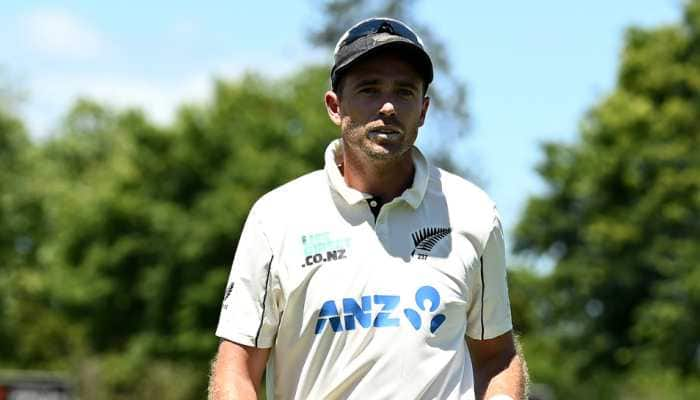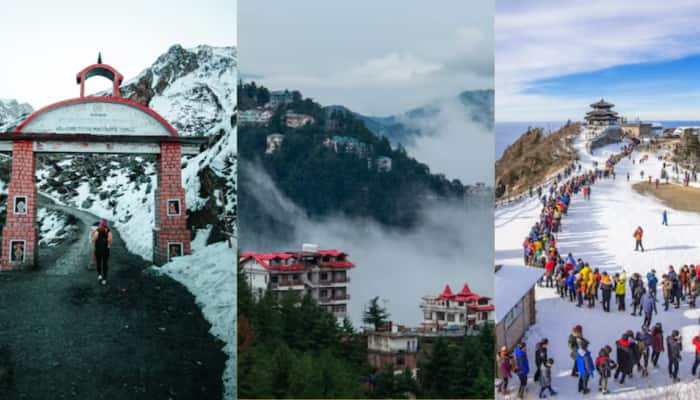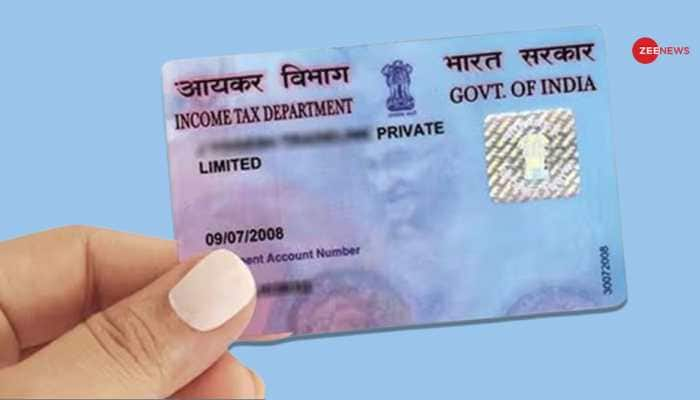Sunnis feel victimised as Iraq goes to polls
Since soldiers arrested and beat Abu Noor, his son and nephew at their modest house in Baghdad`s Adhamiyah neighbourhood, he and his wife have been too scared to leave home.
Trending Photos
)
Baghdad: Since soldiers arrested and beat Abu Noor, his son and nephew at their modest house in Baghdad`s Adhamiyah neighbourhood, he and his wife have been too scared to leave home.
"I feel sick when I talk about this... I only go to work and I come back," said the 54-year-old, who was too scared to give his real name, remembering the night six months ago when the soldiers arrived.
Like Abu Noor and his wife, many Sunni Arabs complain they are discriminated against by the government of Shiite Prime Minister Nuri al-Maliki, who is running for a third term in a parliamentary election on Wednesday.
Umm Noor, a smiling woman in her forties wearing a headscarf, grew angry as she recounted the incident six months ago, when she heard a noise late one night.
Her husband went downstairs to check what was happening, and troops grabbed him, his son and nephew and beat them.
Umm Noor -- literally, "Mother of Noor" -- said she rushed out, without even donning her headscarf, and begged the troops to release them.
They were finally released three hours later, but no explanation was given for their detention.
For these soldiers, "all Sunnis are infidels" and "Saddam`s Baathists," Abu Noor said, referring to the party of now-executed dictator Saddam Hussein.
Iraqi security forces have come in for sharp criticism from diplomats and human rights groups over heavy-handed tactics ostensibly aimed at battling Sunni militant groups such as the powerful Islamic State of Iraq and the Levant (ISIL), but which often hit ordinary Sunnis hardest.
The UN special envoy to Baghdad, Nickolay Mladenov, said in November that the security forces required "massive amounts of retraining" in human rights.
As a result, while few Iraqi Sunnis actively participate in militancy, they are less likely to cooperate with security forces perceived as beholden to the Shiite-led government.Given the feeling of exclusion within the Sunni Arab minority, which ruled Iraq for decades until Saddam`s overthrow in 2003, it is unclear how many will turn out for Wednesday`s election.
Tensions between Sunni Arabs and Shiites run deep, and analysts say both Maliki and the jihadists are trying to exploit the tensions for their own gain.
ISIL fighters, along with those of other militant groups and anti-government tribes, seized the town of Fallujah, in Anbar province just west of Baghdad, several months ago, and it has remained out of government hands since.
"Fallujah residents held no brief for ISIL, but their hatred of the Iraqi army -- seen as the instrument of a Shiite, sectarian regime, directed from Tehran, that discriminates against Sunnis in general and Anbar in particular -- ran even deeper," the Brussels-based International Crisis Group (ICG) said in a report published on Monday.
ICG Iraq analyst Maria Fantappie told AFP violence across the country would mean low Sunni turnout because "in most of the Sunni areas, specifically in Anbar, the election will take place under very difficult conditions."
Maliki in particular has tried to use the standoff in Fallujah to win an electoral advantage, the ICG report said, with Iraq facing its worst protracted period of bloodshed in years.
"To save his prospects, he took a page out of Syrian President Bashar al-Assad`s playbook by exaggerating -- and thereby exacerbating - the threat Fallujah poses to national stability," it said.Although Iraq`s armed forces have strong Kurdish and Sunni Arab contingents, Abu Noor said the troops in his neighbourhood were targeting him because of his religion.
"They are not Iraqis and they do not represent the Iraqi army," he fumed.
Sitting next to him on a faded sofa in their living room, his wife chimed in that "all Iraqis are harmed by those people -- Sunnis, Shiites, Kurds."
Despite this, Abu Noor will make a rare trip outside of his home to vote on Wednesday.
"I will vote for a change," he said, adding that if Maliki won a third term, "we will leave".
"We cannot wait for these people to stay for another four or five years."
Stay informed on all the latest news, real-time breaking news updates, and follow all the important headlines in india news and world News on Zee News.
Advertisement
Live Tv
Advertisement







)
)
)
)
)
)
)
)
)
)
